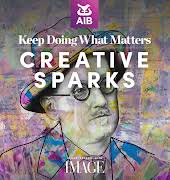
Emotions in the workplace: ‘A few tears and I’m perceived as hysterical’
By Jennifer McShane
28th Sep 2021
28th Sep 2021
An essay by Serena Williams on being emotional in the workplace has Jennifer McShane pondering the pressures on women to keep their feelings pent up in a professional setting.
When was the last time you cried at work? Whether in the office or from the privacy of your own home about work-related stressors. I mean really cried – as opposed to tears of frustration in the tiny cubicles in the loo – so much that it was or would have been noticed by other colleagues.
I remember when I first did in my first proper job, I don’t remember the exact reasoning, just that I had a very legitimate one to cry – it was an extremely testing working environment in which I was constantly belittled.
But I more remember feeling ashamed afterwards. Annoyed at my emotions getting the better of me. It happened once, for around 10 minutes and the comments evermore were, “careful not to upset Jennifer!”. All patronising, all said by male members of staff. Yet one particular colleague could rant and rave in a temper and nothing was said about him getting “upset”. I was the only one upset, apparently.
Advertisement
You will have career highs and lows and occasionally, the lows could see tears fall. “Hysterical,” “emotional,” “upset” – these are terms almost exclusively given to women in the workplace. Men are “passionate,” “intense” or simply “moody”, it’s females who are most often told to get a handle on their emotions.
In an essay penned by sporting superstar Serena Williams, she argues that this shouldn’t be the case, saying its perfectly okay for women to get emotional at work, even if they are often perceived as “hysterical for doing so.”
Writing for Fortune, Williams highlighted the research she conducted into gender parity in the workplace. “Nearly one in three women say they feel that they have to hide their emotions at work to be taken seriously,” she wrote.
Advertisement
“This double standard is seen in the board room and on the tennis court. Women are deemed ‘emotional,’ ‘hysterical,’ or ‘aggressive’ while men who behave the same way face no such consequences. They are perceived in a completely different light.”
The reality is not that emotions have no place in the workplace — constructive emotions can be highly motivating. Yet women are constantly fed the idea that overly intense emotions are wrong; they block effective communication and hinder problem-solving. Men are rarely required to hold themselves back the same way by societal standards.
Emotions vs emotional labour
The irony is that we’re restricted when it comes to expressing our emotions, yet women are expected to take on what is known as ’emotional labour’ both at home and at work. Emotional labour means the time and energy spent on things considered by society to have no real value but which are in fact essential toward functional relationships and functional society.
Buying Birthday cards, arranging gifts for a nieces graduation, organising the office leaving do, traditionally, a burden placed on or taken by women. The term was coined in 1983 by the sociologist Arlie Hochschild but is increasingly coming back into modern feminism.
Think of it as generally feeling as if you are the emotional CEO of the office.
The likeability factor
How we react as women when it comes to our emotions ties into the likeability factor in the office. Are we warm, amenable and diligent or colder and ruthless? It’s usually a case of either or. We want to be friendly with our colleagues yet I was told in a former job that in order to be a truly effective manager, I shouldn’t act this way – I shouldn’t be all that approachable. It was enraging; essentially to be told to refrain from what is my natural, open way as a woman in a senior position if I wanted to be taken seriously.
Advertisement
Would I had been asked this if I were a man? I highly doubt it.
‘Humiliating’
PR Executive Amy recalls a time that she fiercely objected in a meeting and that it followed her around until she moved on. “I was frustrated and couldn’t help that, but few tears in the office and I was perceived as someone erratic. My manager told me to “mind the hysterics” while at work – all for expressing an opinion. It was really humiliating. I felt I couldn’t ever question something in a similar way because I didn’t want to be seen as unprofessional or – hysterical for that matter! I’m freelance now but it took me a long time after that to be able to raise my hand up again.”
“I became so unhappy in a previous job that I just “rage quit” one day. Any time I would point out something wrong with what was a toxic environment, I would be told to “watch myself” or “take a deep breath and a step back,” said Erin, a writer based in Dublin. “Asides from all this, we were a small team with huge stress and unreasonable expectations. I told my manager who promised things would change – I actually tried to hand in my notice two weeks prior and was begged to reconsider – but nothing did. Then I worked on a detailed article under huge stress with no support and when I handed it in I was berated and criticised for half an hour. I lasted until the end of the day and just told my manager that I was going; it was the last straw.”
“I wasn’t proud of it, but it taught me to value myself more, that I’m worth fighting for. Yes, I became emotional to a degree. But was one of the best decisions I ever made.”
This article was originally published in June 2019























